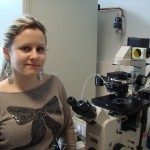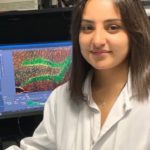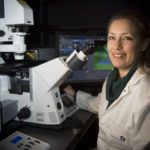Lien DOI – https://doi.org/10.1038/s43587-022-00352-3
Nat Aging 3, 213–228 (2023)
Cognitive decline and mood disorders increase in frequency with age. Many efforts are focused on the identification of molecules and pathways to treat these conditions. Here, we demonstrate that systemic administration of growth differentiation factor 11 (GDF11) in aged mice improves memory and alleviates senescence and depression-like symptoms in a neurogenesis-independent manner. Mechanistically, GDF11 acts directly on hippocampal neurons to enhance neuronal activity via stimulation of autophagy. Transcriptomic and biochemical analyses of these neurons reveal that GDF11 reduces the activity of mammalian target of rapamycin (mTOR), a master regulator of autophagy. Using a murine model of corticosterone-induced depression-like phenotype, we also show that GDF11 attenuates the depressive-like behavior of young mice. Analysis of sera from young adults with major depressive disorder (MDD) reveals reduced GDF11 levels. These findings identify mechanistic pathways related to GDF11 action in the brain and uncover an unknown role for GDF11 as an antidepressant candidate and biomarker.





